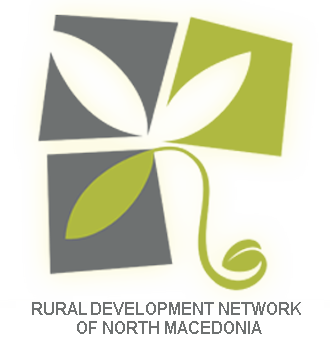On November 10th 2016, at the Business Hall of Skopje Fair, more than a hundred livestock breeders and NEA (National Extension Agency) advisors gathered to learn about the climate change influence in livestock and how to preserve the production from its negative effects. USAID Adaptation to Climate Change in Agriculture project, implemented by the Rural Development Network of the Republic of Macedonia, tested measures for climate change adaptation in pigs, poultry and dairy cattle. The results obtained from the application of the adaptive measures were shared at the event through the presentations delivered by the professors from the Faculty of Agricultural Sciences and Food, who worked intensively together with the project beneficiaries’ farmers in the implementation of these useful and affordable measures and practices.
Prof. Dr. Metodi Trajcev, explained the negative effects of heat stress on milk yield in cows and presented positive results generated from demonstration farms where ventilation and fogging systems were installed. Prof. Dr. Srecko Gjorgjievski described the negative impacts of climate change on animals’ feeding practice, which causes decreased milk yield in cows. The expert promoted the tested measures for improved nutrition and feeding regime which produced excellent results in reducing these adverse effects. Some of the measures include: increased energy per kg of dry matter, decrease of raw fiber, partial replacement of corn with sorghum and inclusion of buffers. Prof. Vlado Vukovic, PhD, explained the impact of high temperatures in the pigs production. He highlighted some of the results that were gained from installing cooling panels (evaporators) in the target farms, such as: reducing the decline of conception rate in pigs for 10.8 % per month on average, increasing the number of live birth pigs to 0.1-0.3 piglets per litter, reducing the level of mortality during lactation by about 5-8%, minimizing the MMA (Mastitis, Metritis, Agalactia) syndrome and so on. In the end, the attention of the audience was kept by the presentation of prof. Dragoslav Kocevski, PhD, which provided guidance and recommendations to egg producers on how to reduce the negative effects of high summer temperatures on layers reflected in reduced number of eggs produced and reduced quality of produced eggs (weaker eggshell and lower inner quality of the eggs).
The USAID Adaptation to Climate Change in Agriculture project used this opportunity to share with all livestock stakeholders the project produced video material with recommendations on decreasing negative effects from climate change in dairy cattle, pigs and poultry.
This video was previously posted to the RDN’s website (www.ruralnet.mk) and Youtube Channel: https://www.youtube.com/watch?v=6scQK6DVUr0&feature=share
